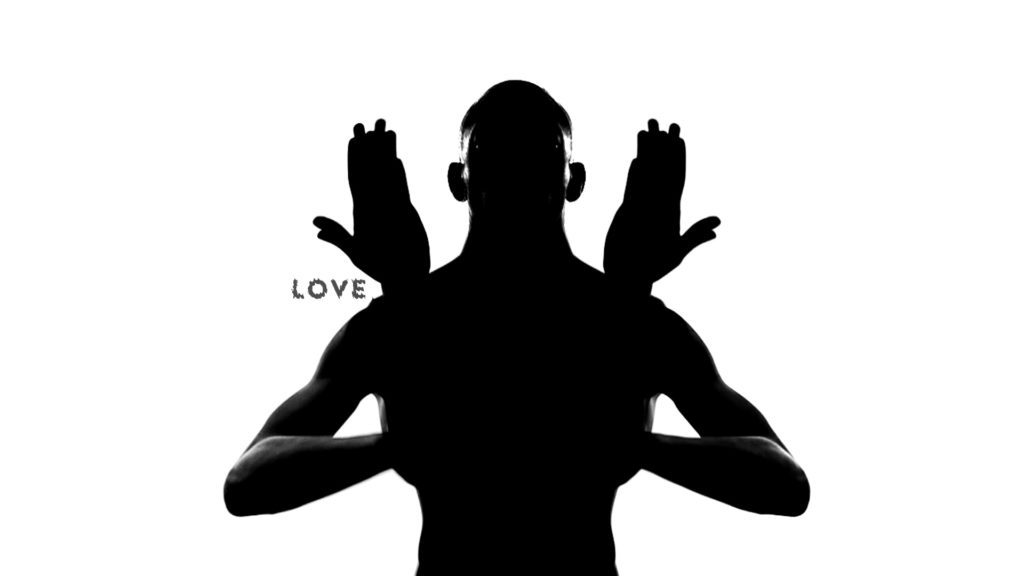Chuchu’s ‘Invocations’ at African Art Museum
By • August 23, 2017 0 588

What comes to mind with the word “initiation”?
The implication might be religious: A bar mitzvah, a first communion, a bris or a baptism. Maybe your mind wanders to Masonic handshakes or murderous induction rituals of the Illuminati. My first thought was giving a friend a book by the author John Williams. “Welcome to the club,” I said. My second thought was being hazed by punch-drunk seniors on my first day of high school.
The ceremony of introducing people to new environments or seeing them through some kind of life transition, however loosely or rigorously, literally or metaphysically defined, is woven firmly into the human fabric. Throughout Africa, South America and Asia, initiation rituals are common among ancient societies, and their practice is far more integral and honored in their lives than any tradition in contemporary civilization.
A commonality among many of these rituals is pain. Bravery in the face of pain has long been a part of initiations and religious rites, from the facial tattoos and whipping competitions of the Fulani in West Africa to the self-flagellation of Catholics in the Philippines to the sheathing of men’s hands in gloves filled with biting tropical bullet ants by natives of the Brazilian Amazon.
Among other reasons, it is a way of making sure the people who are to be admitted into the group will be reliable members, to know they will be able to endure pain and humiliation and will not desert the group.
But what if the nature of your identity was inherently in conflict with your own culture, and coming to terms with your independence and personhood ostracized you from that which you hold dear?
This question is one of many things at the center of Jim Chuchu’s moving, ambitious and beautiful work “Invocations,” recently acquired by the Smithsonian’s National Museum of African Art and on display through July 2018.
Chuchu is a multimedia artist, a singer, songwriter, director, photographer and designer, with a deftness and an uncommon sensitivity in working across mediums. Born and residing in Kenya, he worked briefly as a graphic designer after studying telecommunications, before devoting himself to his diverse creative pursuits.
Since 2008, he has been producing and creating music, directing music videos and creating graphic art. In 2012, he helped establish the Nest Collective, a multidisciplinary art space and artists’ collective in Nairobi. He is clearly a young and powerful voice in the contemporary Kenyan art community, creating his own definition of what it means to be an artist in the 21st century.
He is also a gay man in Africa, one of the most culturally intolerant societies for LGBTQ people in the world.
Across much of Africa, gay people face discrimination, political persecution and, potentially, death. Right now, 33 out of 54 African countries criminalize homosexual behavior. The Kenyan government, specifically, punishes consensual sex between homosexual men with 14 years’ imprisonment.
“Invocations” is a single work, a six-minute, two-act, black-and-white video installation in a successive loop that follows the loose structure of initiation rituals.
Part one, “The Severance of Ties,” evokes the emotional rite of distancing oneself from parental influence and facing one’s identity. A torso spins in the center of the screen, nearly an outline, with slivers of light that define the form and a necklace of streamers which twirls around it like a carnival ride. It is a body in ecstasy — whether terrible or joyous is hard to say.
Chuchu draws upon these languages of rituals and the divine imagery of world religions to commemorate his own painful journey of self-definition as an adult and as a gay man.
Chuchu then emerges from the waste up, mirrored into three men as if seen through a kaleidoscope. The three men merge together in the center of the screen but move independently in a harmonic choreography like a six-armed God, like the Hindu Trinity: the creator, the preserver and the destroyer.
As the video plays between variations on these images, words come in through flashes on the screen and the lyrics of the hypnotic song Chuchu composed for the video: Duty. I Am Not Your Son. Responsibility. Blood. Love. This Is Not Your Name. Too Late. Do You Know Me?
In part two, “Release,” a single body rises like a swell into a skyscape, curling up slowly with an articulated spine that rounds itself vertebra over vertebra, like a dolphin breaching or a butterfly emerging from its chrysalis. A second body slowly emerges. They lift their heads toward the sky, open their mouths and billow thick black vapor from their mouths like a coal mine. It is the emergence of identity, multifaceted and complex, yet singular.
Chuchu draws upon these languages of rituals and the divine imagery of world religions to commemorate his own painful journey of self-definition as an adult and as a gay man, envisioning a more inclusive African future. It is an entrancing montage, shifting, fragmenting, changing, in a state of perpetual transformation.
“Invocations” is both haunting and comforting, unnerving and yet familiar. It is wise and yet it answers no questions. It is searching, asking. Perhaps most importantly, it is a bold appeal for acceptance and recognition. It’s something I’m sure we could all use right now.

